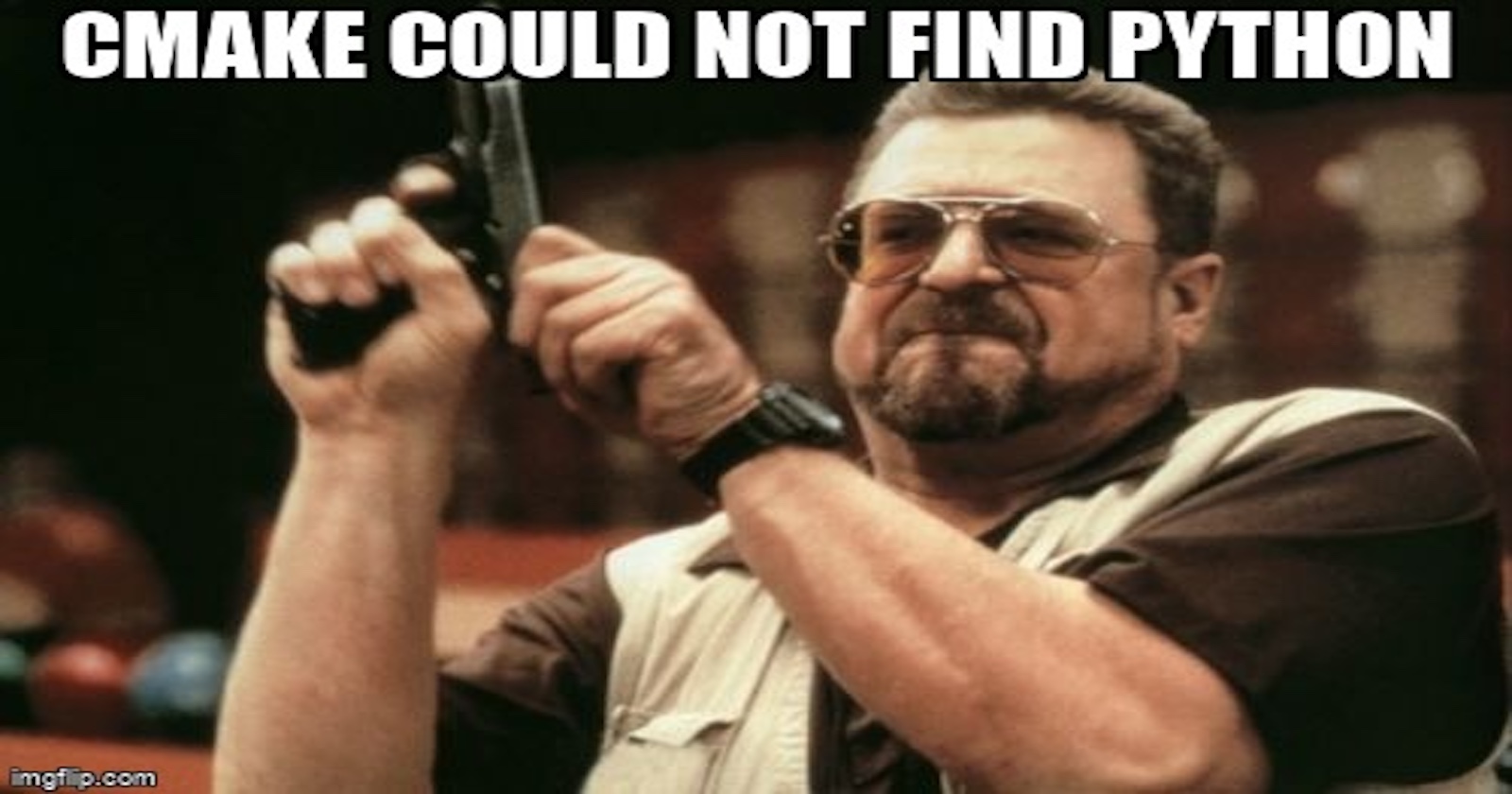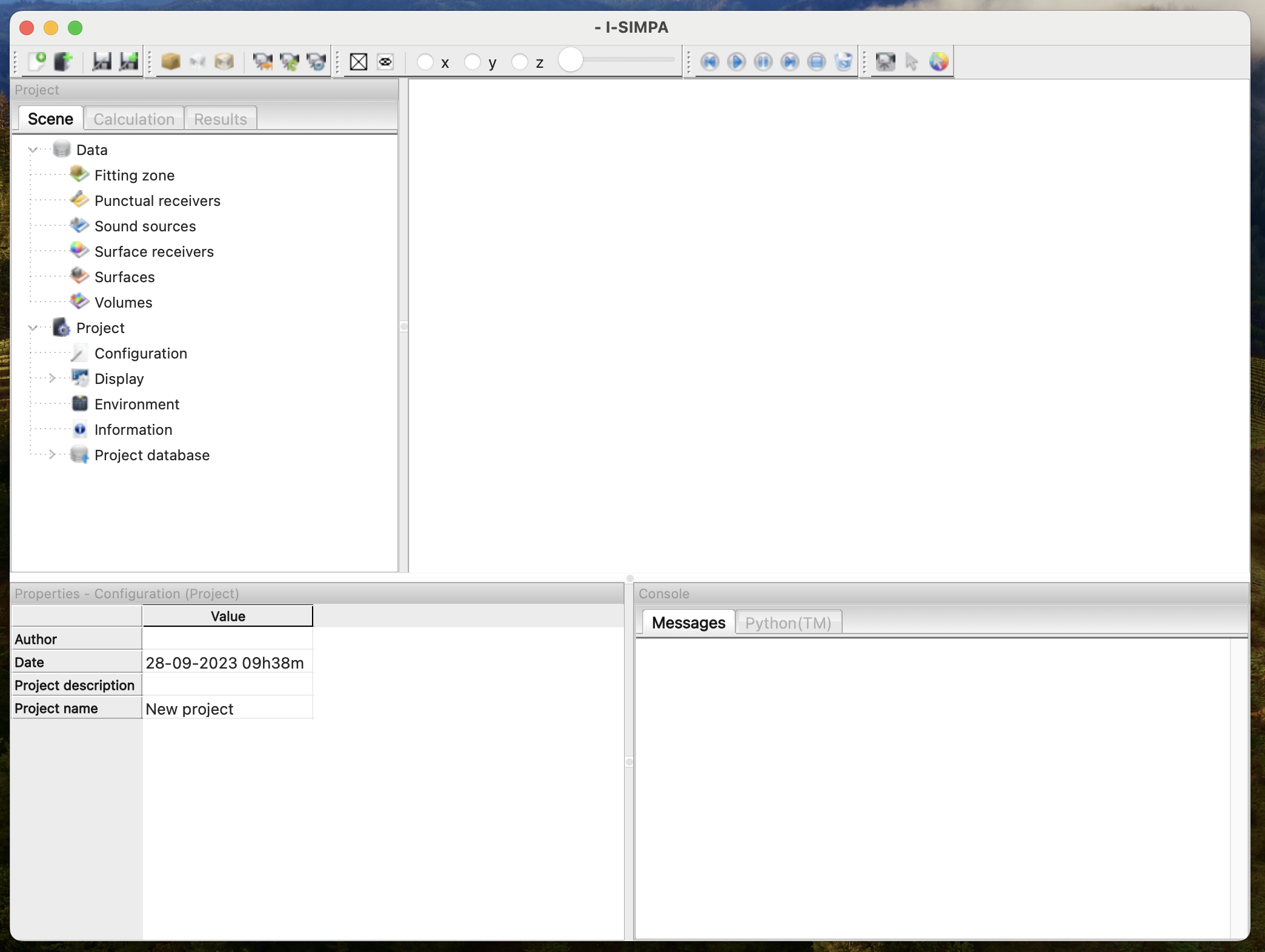YDPA #02: You Don't Pay to do #Acoustics
 Jay
Jay
(cover credit @askubuntumemes)
We will be finally setting our foot on the ground! Feel free to clone the repository to follow along:
What you need before starting
First of all, you need the common developer tools available on Mac: git, gcc, make and g++. If they aren't, proceed to Terminal and run through xcode-select --install.
And, make sure you have Homebrew installed!
Finally, we need a few packages from Homebrew before proceeding, they are essential for building the dependencies needed in later stages:
brew install pcre automake
Dependencies
A glimpse of the CI configurations at appveyor.yml and ci/travis/linux.yml for (Appveyor and Travis CI respectively) reveals the general flow of building the software:
Download source codes of third-party packages
Install the packages with custom options (using
make)Navigate to the project directory, compile
Pack, install, and test the compiled artifacts
The main packages used are:
python 3.8: Needed for compiling, in case of user-supplied scriptsboost 1.73.0: Used in EVERY module- Sublibraries:
filesystem,system,test,regex,python,random,thread,timer,date_time
- Sublibraries:
swig 3.0.10: Transforming numerical codes intopythonexternal packages, which could be used by user-supplied scriptswxWidgets 3.1.4: Rendering interactive components in the User InterfaceCMake 3.17.2: For building the softwareOpenGL(in a subtle way): Rendering 3D models in the User Interface
conan, vcpkg) could be beneficiary in the long term, this goal is suspended at the moment due to compatibility concerns.Let's have fun :)
Boostrapping
In case the version of python does no match exactly on your machine (it was shipped in xcode-select --install), you can install it via brew install python@3.8 or manually compiling the source code.
> python3 --version
Python 3.9.6
In the former case, brew linked the binary to python3.8 automatically.
> which python3.8
/usr/local/bin/python3.8
Now let's follow along with the Linux build scripts from the original repository:
# ci/travis/linux/before_install.sh
#
# Boost install
if [ -d $HOME/boost-install/boost ] ; then
echo "Boost already built (and in travis cache)"
else
cd
wget https://sourceforge.net/projects/boost/files/boost/1.73.0/boost_1_73_0.tar.bz2
tar -xjf boost_1_73_0.tar.bz2 --strip-components=1 -C $HOME/boost-install
ls -l $HOME/boost-install
cd $HOME/boost-install && echo "using python : 3.8 : /usr/bin/python3 : /usr/include/python3.8 : /usr/lib ;" > tools/build/src/user-config.jam
cd $HOME/boost-install && ./bootstrap.sh link=static variant=release address-model=64 cxxflags="-std=c++11 -fPIC" boost.locale.icu=off --with-libraries=filesystem,system,test,regex,python,random,thread,timer,date_time --prefix=$HOME/boost-install && ./b2 install
fi
export BOOST_LIBRARYDIR=$HOME/boost-install/lib/
export BOOST_INCLUDEDIR=$HOME/boost-install/
export BOOST_ROOT=$HOME/boost-install/
#
# Swig install
if [ -f $HOME/swig-install/bin/swig ] ; then
echo "Swig already built (and in travis cache)"
else
cd
wget https://github.com/swig/swig/archive/rel-3.0.10.tar.gz
tar zxvf rel-3.0.10.tar.gz
mkdir $HOME/swig-install
cd $HOME/swig-rel-3.0.10 && ./autogen.sh && ./configure --prefix=$HOME/swig-install && make && make install
fi
#
# WXWidget install
if [ -d $HOME/wxWidgets-install/include ] ; then
echo "wxWidget already built (and in travis cache)"
else
cd
wget https://github.com/wxWidgets/wxWidgets/releases/download/v3.1.4/wxWidgets-3.1.4.tar.bz2
tar -xjf wxWidgets-3.1.4.tar.bz2
mkdir $HOME/wxWidgets-install
cd $HOME/wxWidgets-3.1.4 && ./configure --prefix=$HOME/wxWidgets-install --disable-shared && make && make install
fi
The above steps could take a while, it is straightforward enough that the packages are downloaded, and built under designated locations. These locations would be referenced by CMAKE in later stages.
wget https://x.y.z is not available, use curl -LOJ https://x.y.z instead. Pay attention to the names of downloaded files.And finally, we download CMake and make sure everything is okay.
Note the change of file name from cmake-3.17.2-Linux-x86_64.tar.gz to cmake-3.17.2-Darwin-x86_64.tar.gz, and the strip value.
# check wxWidget install
export PATH=$HOME/wxWidgets-install/bin/:$PATH
echo "wxWidget version : "
wx-config --version
# Download CMake
cd
wget --no-check-certificate curl -LOJ https://cmake.org/files/v3.17/cmake-3.17.2-Darwin-x86_64.tar.gz
mkdir $HOME/cmake-install
tar zxvf cmake-3.17.2-Darwin-x86_64.tar.gz -C $HOME/cmake-install --strip 3
Compiling with CMake
librt and clock_gettime()
# ci/travis/linux/install.sh
mkdir build
cd build
CLANG_WARNINGS=""
# wxWidget path (only in script scope)
export PATH=$HOME/wxWidgets-install/bin/:$HOME/swig-install/bin/:$HOME/cmake-install/bin/:$PATH
export BOOST_LIBRARYDIR=$HOME/boost-install/lib/
export BOOST_INCLUDEDIR=$HOME/boost-install/
export BOOST_ROOT=$HOME/boost-install/
cmake --version
# ${CC} --version
# ${CXX} --version
ls $HOME/boost-install/lib/
cmake ..
Here the original script is fully applicable to MacOS environments, theoretically (cough). Now CMake comes into play.
-- Looking for clock_gettime in rt
-- Looking for clock_gettime in rt - not found
CMake Error at src/spps/CMakeLists.txt:74 (message):
clock_gettime not found
-- Configuring incomplete, errors occurred!
And at src/spps/CMakeLists.txt:
# Check for clock_gettime function
if (UNIX)
include(CheckLibraryExists)
check_library_exists(rt clock_gettime "time.h" HAVE_CLOCK_GETTIME )
if(NOT HAVE_CLOCK_GETTIME)
message(FATAL_ERROR "clock_gettime not found")
endif(NOT HAVE_CLOCK_GETTIME)
endif(UNIX)
The issue is, although OSX is Unix, but neither clock_gettime() nor librt is implemented. We could get away with this error simply by narrowing the if-condition.
-if (UNIX)
+if (UNIX AND NOT (${CMAKE_SYSTEM_NAME} MATCHES "Darwin"))
include(CheckLibraryExists)
check_library_exists(rt clock_gettime "time.h" HAVE_CLOCK_GETTIME )
if(NOT HAVE_CLOCK_GETTIME)
message(FATAL_ERROR "clock_gettime not found")
endif(NOT HAVE_CLOCK_GETTIME)
-endif(UNIX)
+endif(UNIX AND NOT (${CMAKE_SYSTEM_NAME} MATCHES "Darwin"))
And vice versa for another snippet in the same file:
- if(UNIX)
+ if(UNIX AND NOT (${CMAKE_SYSTEM_NAME} MATCHES "Darwin"))
target_link_libraries (spps rt)
- endif(UNIX)
+ endif()
Now you should be able to generate the build files under build/ .
OpenGL Tweaks
Remember what the repository said? Some special CMake directives of OpenGL are needed. Let us try running the build script first: make VERBOSE=1:
src/isimpa/./GL/opengl_inc.h:40:10: fatal error: 'GL/gl.h' file not found
#include <GL/gl.h>
^~~~~~~~~
1 error generated.
Hence, the OpenGL header is not properly included. A solution taken from StackOverflow hints the correct way:
#if defined(__APPLE__)
#include <OpenGL/gl.h>
#include <OpenGL/glu.h>
#else
#include <GL/gl.h>
#include <GL/glu.h>
#endif
Make the appropriate changes to all the files containing similar headers (except the ones specifically for Windows), run make install, then lastly you will be able to see the precious binary file at build/bin/isimpa !
😛 Sad news!
> ./bin/isimpa
dyld[4253]: Library not loaded: @rpath/libboost_system.dylib
Referenced from: <C9FD3A5A-FDBC-3356-ABCF-5CBF7085B819> /Users/asuwish/Documents/sandbox/J-Simpa/build/bin/isimpa
Reason: no LC_RPATH's found
zsh: abort bin/isimpa
Why is that? We are indeed linking to the dynamic libraries of boost (like .dll as in Windows, .dylib as in Mac) when we run the executable every time. And we did not supply LC_RPATH at build time, so the PC has no way to find out where the library is located. By using otool (shipped in OSX), we can identify the loading path of respective binaries:
> otool -L ./bin/isimpa
./bin/isimpa:
@rpath/libboost_system.dylib (compatibility version 0.0.0, current version 0.0.0)
@rpath/libboost_python38.dylib (compatibility version 0.0.0, current version 0.0.0)
@rpath/libboost_filesystem.dylib (compatibility version 0.0.0, current version 0.0.0)
@rpath/libboost_regex.dylib (compatibility version 0.0.0, current version 0.0.0)
/usr/local/opt/python@3.8/Frameworks/Python.framework/Versions/3.8/Python (compatibility version 3.8.0, current version 3.8.0)
...
While a compact fix requires further effort, here is a simple fix:
> install_name_tool -change @rpath/libboost_system.dylib $HOME/boost-install/lib ./bin/isimpa
> ./bin/isimpa:
/Users/abc/boost-install/lib/libboost_system.dylib (compatibility version 0.0.0, current version 0.0.0) (compatibility version 0.0.0, current version 0.0.0)
...
After replacing all the rpath... Voila!

Subscribe to my newsletter
Read articles from Jay directly inside your inbox. Subscribe to the newsletter, and don't miss out.
Written by

Jay
Jay
An acoustician, a DevOps engineer and a pen-tester :)